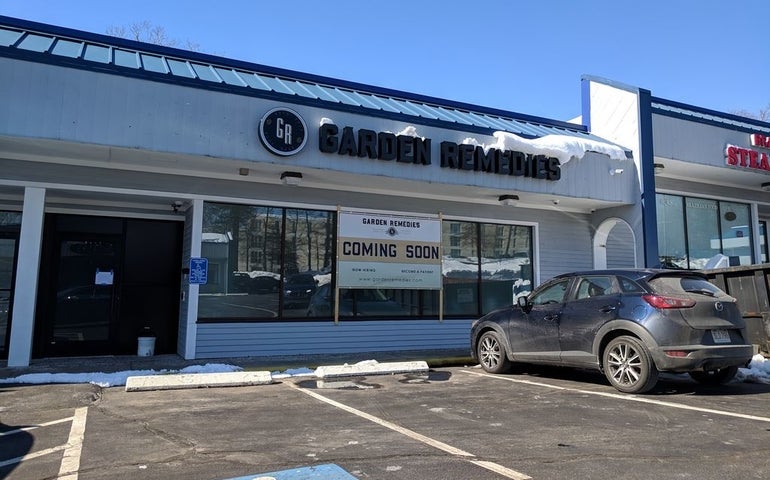As the Massachusetts cannabis industry battles declining cannabis prices, lawsuits, and a number of other growing pains, a new business association has emerged to attempt to provide a singular voice for license holders and ancillary companies.
The Boston-based Massachusetts Cannabis Coalition launched in late 2023, with members including Garden Remedies of Fitchburg. The MCC was founded by Ryan Dominguez, a former chief of staff for State Rep. Chynah Tyler (D-Roxbury).
Dominguez founded Mass CultivatED, a Boston nonprofit focused on providing cannabis-related employment and education opportunities for formerly incarcerated people. He is a member of the Cannabis Social Equity Advisory Board, a state board administrating the Cannabis Social Equity Trust Fund, designed to assist entrepreneurs from communities disproportionately harmed by marijuana prohibition and enforcement.
The coalition joins a number of other cannabis-focused business associations. The Boston-based Massachusetts Cannabis Business Association was founded in 2018. At the federal level, the U.S. Cannabis Council in Washington D.C is made up of some of the largest marijuana companies in the world. USCC members include Wakefield-based Curaleaf and Norwood-based MariMed, two publicly traded companies operating businesses across multiple states. The Denver-based National Cannabis Industry Association focuses on issues impacting smaller cannabis businesses, among other trade groups.
The new Massachusetts Cannabis Coalition sets itself apart because of the broad coalition it’s attempting to build, Dominguez said.
“The biggest [difference] is that we’re inclusive of all different kinds of license types and ancillary businesses,” he said. “You see a lot of organizations out there that focus on a specific license type. What we want to do is to be a platform where everyone can come together and focus on the big picture issues that everyone can agree upon.”
The launch of this new coalition comes as multiple Central Massachusetts cannabis firms are facing lawsuits over unpaid bills, as declining prices and high costs are squeezing businesses in the industry. Revolutionary Clinics in Fitchburg is facing a $280,000 lawsuit over unpaid rent at its Cambridge dispensary. Greatest Hits, a Dudley-based operator of dispensaries, has been sued for alleged unpaid invoices relating to products it purchased on the wholesale market from a Chelsea-based cultivator. Discern’d Cannabis Purveyors in Grafton is facing a lawsuit over alleged unpaid debt, and Cresco Labs, a Chicago-based cannabis company with a location in Leicester, is suing a cannabis company with locations in Wellfleet and Attleboro for an alleged lack of payment.
A proposed cannabis grower in Clinton was also facing a lawsuit over alleged unpaid invoices for the installation of an HVAC system, but it has since settled the lawsuit for an undisclosed amount.
Policy changes
One policy Dominguez wants to tackle is purchase limits. Currently, adult use consumers in Massachusetts are limited to purchasing one ounce per day from a particular dispensary, less than states like Maine and Michigan, which allow customers to purchase two and a half ounces.
Another policy MCC would like to address is the process of registering employees with the Massachusetts Cannabis Control Commission.
Businesses must submit an agent registration application for each license they hold. This means an employee working at multiple locations, or a single facility that holds multiple license types, sometimes has to carry a bundle of agent registration cards with them while working.
The agent registration is tied to the business, meaning an employee who leaves one cannabis company to join another must be re-registered. These costs add up for businesses; adult-use agent registrations cost $115 a year, while medical agents registrations cost $500. An employee who works at a co-located medical and adult-use dispensary needs both registrations.
All this leads to situations where businesses are spending thousands of dollars a year on this process, said Dominguez.
“We’re thinking about ways we can change that system to be one agent to one badge and having that badge be able to be taken to different companies,” he said.
Broad coalition, state-level focus
MCC’s membership base is broad, said Dominguez.
“We represent everybody across the commonwealth, big and small. We have members that are independent cultivators, single retailers, all the way up to vertically-integrated operators,” he said, referencing companies that grow, manufacture and sell their own products.
One member of this nascent organization is Clear Sky Cannabis, a cannabis retailer with locations in Worcester, Belchertown, and North Adams.
ClearSky joined MCC as part of an effort to create a strong regulatory system, said Clearsky President and CEO Anthony Parrinello.
“We want to build a super robust program that is smart and takes into consideration public safety and good public policy,” he said. “We want it to be competitive from a tax-generation standpoint for the commonwealth, and we want to have sensible regulations and an operating environment that’s balanced and allows companies to compete effectively.”
Another MCC member is Garden Remedies, a vertically integrated company with a cultivation in Fitchburg and multiple retail locations, including one in Marlborough. Other members include Theory Wellness, a vertically integrated company started in Massachusetts but now operating in six states, and 6 Brick’s Cannabis Dispensary, a Black- and woman-owned dispensary in Springfield.
Even with efforts to change the federal cannabis laws, MCC’s focus is mostly on the state-level for now, but Dominguez hopes to find ways to provide some local context to federal lawmakers.
“We’ll be involved from afar in some of those conversations, trying to provide some of the Massachusetts context,” he said. “There’s an opportunity for all of us as these federal legalization talks progress over the next few years.”

